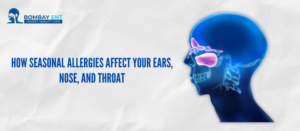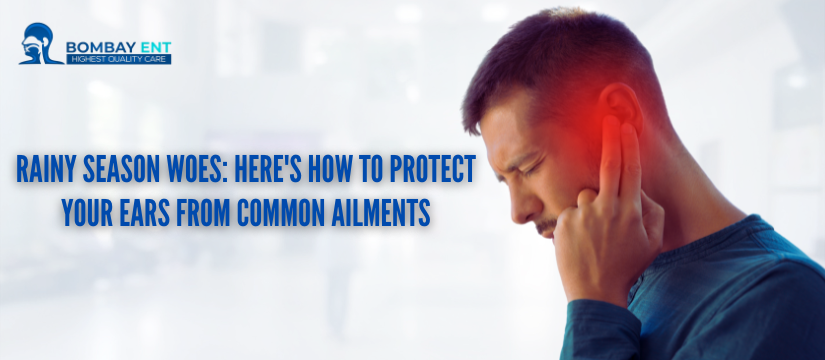 Seasonal allergies, also known as hay fever or allergic rhinitis, impact millions of people worldwide. These allergies, triggered by pollen, mold spores, and other allergens, can wreak havoc on various parts of your body, especially your ears, nose, and throat. Understanding how these allergies affect these areas and finding ways to manage symptoms is crucial for maintaining overall health and well-being.
Seasonal allergies, also known as hay fever or allergic rhinitis, impact millions of people worldwide. These allergies, triggered by pollen, mold spores, and other allergens, can wreak havoc on various parts of your body, especially your ears, nose, and throat. Understanding how these allergies affect these areas and finding ways to manage symptoms is crucial for maintaining overall health and well-being.
Understanding Seasonal Allergies
Seasonal allergies occur when your immune system overreacts to allergens such as pollen, grass, and mold. These allergens are prevalent during certain times of the year, particularly in the spring, summer, and fall. When inhaled, these allergens trigger an immune response, releasing histamines and other chemicals. This immune response causes the characteristic symptoms of allergies, such as sneezing, itching, and congestion. For many, these symptoms can be severe enough to interfere with daily activities and overall quality of life.
Impact on the Nose
Runny Nose
One of the most common symptoms of seasonal allergies is a runny nose. When exposed to allergens, the nasal passages produce excess mucus as a defense mechanism. This overproduction leads to a constantly runny nose, which can be both annoying and uncomfortable. The persistent need to blow your nose or wipe away mucus can also cause irritation and soreness around the nostrils.
Nasal Congestion
Nasal congestion occurs when the tissues lining the nose become swollen due to inflammation caused by allergens. This swelling can block the nasal passages, making it difficult to breathe through the nose. The congestion often leads to mouth breathing, which can dry out the mouth and throat, further contributing to discomfort. For many people, nasal congestion can be particularly bothersome at night, leading to disrupted sleep and fatigue.
Sneezing
Sneezing is a reflex action that helps clear the nasal passages of irritants, including allergens. During allergy season, frequent sneezing is a common response to allergens entering the nasal passages. While sneezing helps expel allergens, it can also be disruptive, especially in social or professional settings. Repeated sneezing can cause irritation and soreness in the nasal passages and throat.
Sinus Inflammation and Pain
Sinus Pressure
Allergens can cause the sinuses to become inflamed, leading to a condition known as sinusitis treatment in Mumbai. This inflammation can result in a buildup of mucus, which creates pressure and pain around the forehead, eyes, and cheeks. The pressure can be intense and persistent, leading to significant discomfort. Some people may also experience tenderness in these areas, making it painful to touch the face.
Headaches
Persistent sinus pressure can trigger headaches, which are a common complaint among those with seasonal allergies. These headaches can vary in intensity and duration, often exacerbating the discomfort caused by sinusitis. The pain is usually concentrated in the areas around the eyes and forehead and can sometimes be severe enough to interfere with daily activities. Managing sinus pressure through medications and other treatments can help alleviate these headaches.
Effects on the Throat
Sore Throat
Postnasal drip, a condition where excess mucus drips down the back of the throat, is a common symptom of seasonal allergies. This constant mucus drainage can cause irritation and inflammation, leading to a sore throat. The soreness can make swallowing uncomfortable and may lead to a persistent need to clear the throat. For many, a sore throat is one of the most irritating symptoms of seasonal allergies.
Itchy Throat
In addition to a sore throat, many people with seasonal allergies experience an itchy, scratchy sensation in the throat. This itchiness is caused by the presence of allergens and the body’s immune response to them. The irritation often prompts the urge to cough, which can further irritate the throat. This cycle of itching and coughing can be particularly bothersome and can disrupt sleep and daily activities.
Ear Discomfort
Ear Congestion
Seasonal allergies can also impact the ears. Inflammation and excess mucus can block the Eustachian tubes, which connect the middle ear to the back of the throat. This blockage can cause a feeling of fullness or pressure in the ears, similar to what you might experience during a change in altitude. Ear congestion can affect hearing, making sounds seem muffled or distant.
Ear Infections
The blockage of the Eustachian tubes can lead to fluid buildup in the middle ear, increasing the risk of ear infections. These infections can be painful and may cause additional symptoms such as fever and discharge from the ear. Chronic ear infections can also affect hearing and balance. If you experience recurrent ear infections, it’s important to seek medical advice to prevent complications.
Hearing Issues
Temporary hearing loss or muffled hearing can occur due to fluid and pressure changes in the ears caused by allergies. While this hearing loss is usually temporary, it can be disconcerting and may affect your ability to communicate effectively. Managing ear congestion and infections promptly can help restore normal hearing.
Managing Symptoms
Avoidance
Minimizing exposure to allergens is a key strategy in managing seasonal allergy symptoms. Stay indoors during high pollen days, keep windows closed, and use air purifiers to reduce indoor allergens. Wearing a mask when outside can also help reduce exposure to pollen and other allergens. Showering and changing clothes after spending time outdoors can help remove allergens from your skin and hair.
Medications
Over-the-counter antihistamines, decongestants, and nasal corticosteroids can help alleviate allergy symptoms. Antihistamines work by blocking the action of histamine, a chemical released during an allergic reaction. Decongestants help reduce nasal congestion by shrinking swollen blood vessels in the nasal passages. Nasal corticosteroids reduce inflammation and are effective in treating nasal symptoms of allergies.
Hydration
Drinking plenty of fluids helps thin mucus and keeps your throat moist, making it easier to manage symptoms like postnasal drip and sore throat. Warm liquids such as tea and broth can be particularly soothing. Staying hydrated also supports overall health and helps your body function more effectively in managing allergy symptoms.
Saline Rinses
Using saline nasal sprays or rinses can help clear nasal passages and reduce congestion. Saline rinses work by flushing out allergens and excess mucus, providing relief from nasal symptoms. They are safe for regular use and can be a helpful addition to your allergy management routine.
When to Seek Medical Help
While many people can manage seasonal allergies with home remedies and over-the-counter medications, some may require professional medical assistance. Consult a healthcare provider if:
Symptoms Persist
If symptoms do not improve with standard treatments, it may be necessary to seek medical advice. Persistent symptoms could indicate a need for stronger or different medications.
Severe Reactions
Seek immediate medical attention if you experience severe allergic reactions, such as difficulty breathing or swelling. These symptoms can be signs of anaphylaxis, a life-threatening allergic reaction.
Chronic Infections
Frequent ear or sinus infections may require professional evaluation and treatment. Chronic infections can lead to complications and may need more specialized care.
Conclusion
Seasonal allergies can significantly affect your ears, nose, and throat, causing discomfort and disrupting daily life. By understanding the symptoms and implementing effective management strategies, you can alleviate the impact of these allergies and enjoy a better quality of life. Stay proactive, consult healthcare professionals when necessary, and embrace preventive measures to keep seasonal allergies at bay.
FAQs
Q. How do seasonal allergies affect the ears?
Ans: Seasonal allergies can cause ear congestion by blocking the Eustachian tubes, leading to a feeling of fullness or pressure and increasing the risk of ear infections.
Q. Can seasonal allergies cause sinusitis?
Ans: Yes, allergens can cause the sinuses to become inflamed, resulting in sinusitis, which involves sinus pressure, pain, and headaches.
Q. What are the common symptoms of seasonal allergies affecting the throat?
Ans: Common symptoms include a sore throat due to postnasal drip and an itchy, scratchy throat.
Q. How can I reduce nasal congestion from seasonal allergies?
Ans: Using saline nasal sprays, staying hydrated, and taking over-the-counter decongestants can help reduce nasal congestion.
Q. When should I seek medical help for seasonal allergies?
Ans: Consult a healthcare provider if symptoms persist despite treatment, if you experience severe reactions, or if you have frequent ear or sinus infections.
Q. What preventive measures can I take to avoid seasonal allergies?
Ans: Monitor pollen counts, shower after outdoor activities, and use HEPA filters to reduce indoor allergens.
About Dr. Maqsood Ali Khan
At Bombay ENT, we are dedicated to providing the best care for our patients and ensuring they receive the most effective treatments for their ENT conditions. Dr. Maqsood Ali Khan, an esteemed ENT specialist, and surgeon, is here to help you navigate the challenges of seasonal allergies and other ENT issues. With over 14 years of experience in ENT and Skull-Base Surgery, Dr. Maqsood Ali Khan has a wealth of knowledge and expertise in treating a wide range of conditions. We are committed to helping you achieve optimal health and well-being. By following our advice and utilizing effective management strategies, you can minimize the impact of seasonal allergies and maintain your health throughout the year.


